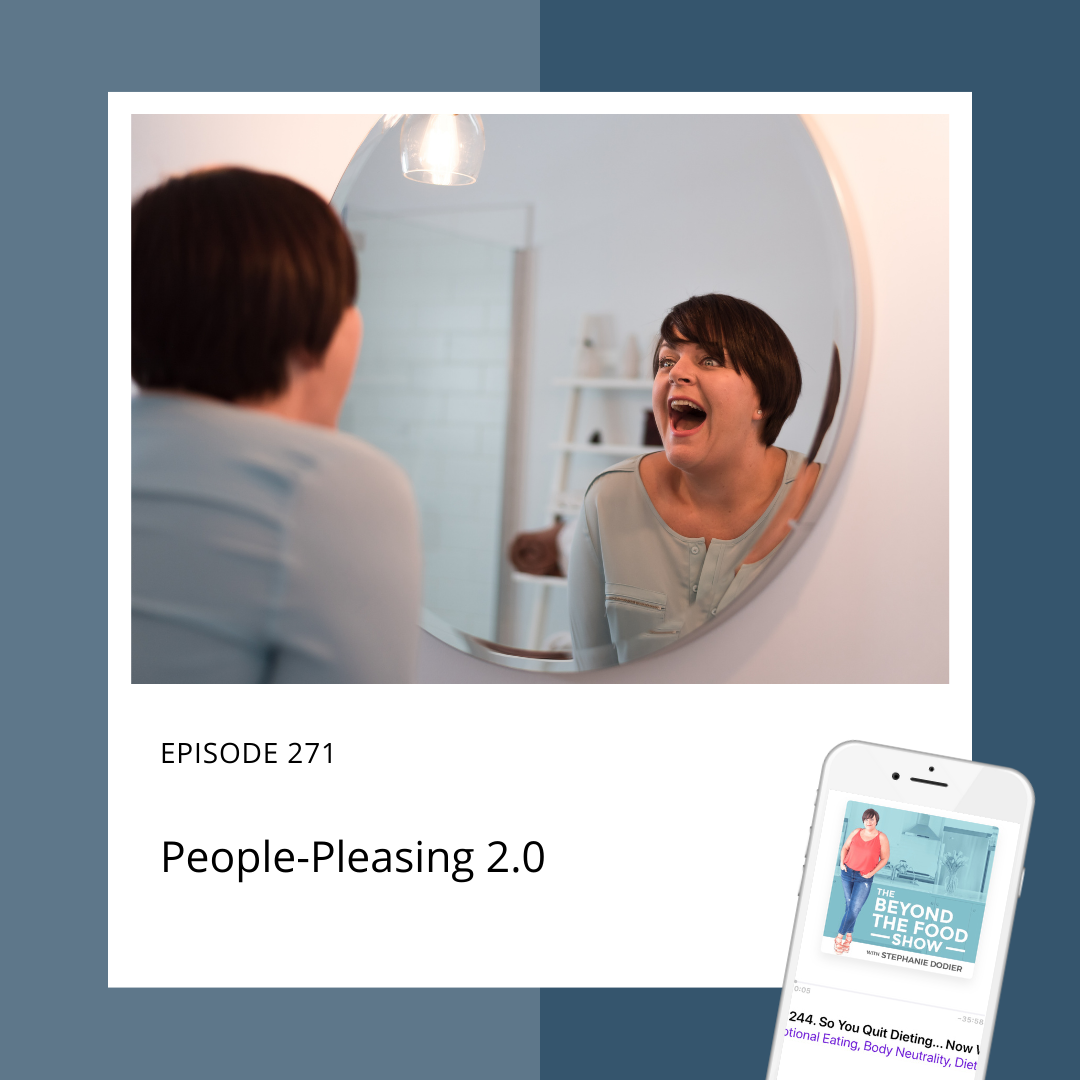
People-pleasing isn’t a character trait or, for that matter, a personality trait that we are born with.
In fact, people-pleasing is a belief, a set of thoughts that we as women are socialized to. More precisely, we aren’t socialized or educated to be people-pleasers… we are socialized to be “good girls”.
The Good Girl Syndrome is like a character we are asked to play as women and from a very young age. As people identifying as women, we are socialized to be polite, modest, quiet, not to argue, not to fight, play within the parameters, and most importantly, fit the norm…
Indeed, we are socialized to believe that we are responsible for other people’s perceptions of us. Other people’s perception of us is more valuable than our own opinion of ourselves.
So effectively, we are taught to be people-pleasers.
But I’m not a people-pleaser… really?
If you are thinking right: well, this is not me, BUT you are struggling to accept your body. I’m afraid to tell you, my sister, it’s you.
Women’s relentless pursuit of the thin ideal and unwillingness to accept their bodies is grounded in our socialization to be good girls and meet others’ expectations.
This is why in great part, most people identified as men aren’t affected by body image. Moreover, they can’t even begin to comprehend why we care so much about what other people think of our bodies. That is to say, they aren’t socialized the same as we are as people identified as women.
It’s not built in their belief system as it is for us.
So, how does being a people-pleaser show up in other parts of your life? That’s what we will unpack in this podcast episode.
What you’ll learn listening to this episode on people-pleasing:
- How women are socialized to be people-pleasers
- Understand the link between body dissatisfaction and people-pleasing
- The big lie fueling the desire to please others
- The 4 steps for women to free themselves from people-pleasing






